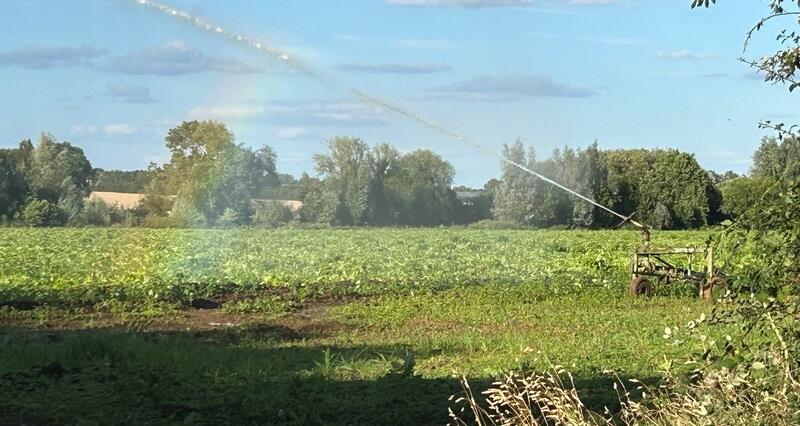NFU chief environment adviser Dr Diane Mitchell presented on the next steps for tackling water pollution in England, at the Westminster Energy, Environment & Transport Forum policy conference held in September.
Agriculture’s progress in improving water quality
Dr Mitchell emphasised that the agricultural sector recognises its pivotal role in enhancing water quality.
She noted that significant progress has already been made through changes in best practices, participation in agri-environment schemes, and industry-led initiatives, saying: “The use of nitrogen and phosphate fertilisers has fallen by 46% and 81%, respectively, over recent decades.”
More efficient use of fertilisers has, in turn, led to 45% less nitrogen and 96% less phosphorus being held in soils, meaning that these nutrients are less likely to be lost to water.
NFU response to OEP recommendations
Diane addressed several key recommendations from a recent OEP (Office for Environmental Protection) report, which looked at how laws are implemented to protect England’s rivers, lakes and coastal waters.
Of the recommendations, the NFU would like action to be taken by the government to:
- update the economic analysis of RBMPs (River Basin Management Plans) and ensure suggested measures for agriculture are fully costed
- ensure a coherent monitoring and evaluation framework
- clarify how the various water related environmental regulations and goals relate to each other.
She emphasised the importance of a robust monitoring framework to build an accurate picture of the health of but also track progress in our water bodies. The NFU welcomes the opportunity to engage with the government’s forthcoming review of the water sector regulatory framework.
On policy and support, Diane outlined several key areas identified by the NFU for improvement. She stressed the need for simplified water quality regulations, stating: “The NFU supports the previous government's commitment to simplify water quality regulation.”
Current regulations can be complex and confusing. Simplification would help with understanding and compliance and should also result in affordable, proportionate, and outcomes-focused rules.
Read the NFU's response to the OEP report: OEP report calls for more investment to protect our rivers
Giving farmers the tools to do more
Dr Mitchell highlighted the need for more enabling planning rules to support modern infrastructure on farms. She noted: “The NFU believes that the planning system does not always support the replacement and modernisation of infrastructure on farms despite reducing emissions.”
Furthermore, Diane emphasised the importance of grants with sufficient intervention rates to help with one-off capital costs, such as slurry infrastructure improvements.
She also stressed the role of ELMs (Environmental Land Management schemes), particularly the SFI (Sustainable Farming Incentive), in helping with widespread uptake of water quality measures.
Additionally, Diane suggested that private sector funding may offer opportunities, but additional government support may be needed to give farmers greater confidence to participate.
Looking to the future
To concluded, Diane expressed the industry's eagerness to collaborate closely with government bodies and local authorities to better protect and improve water quality across England.




